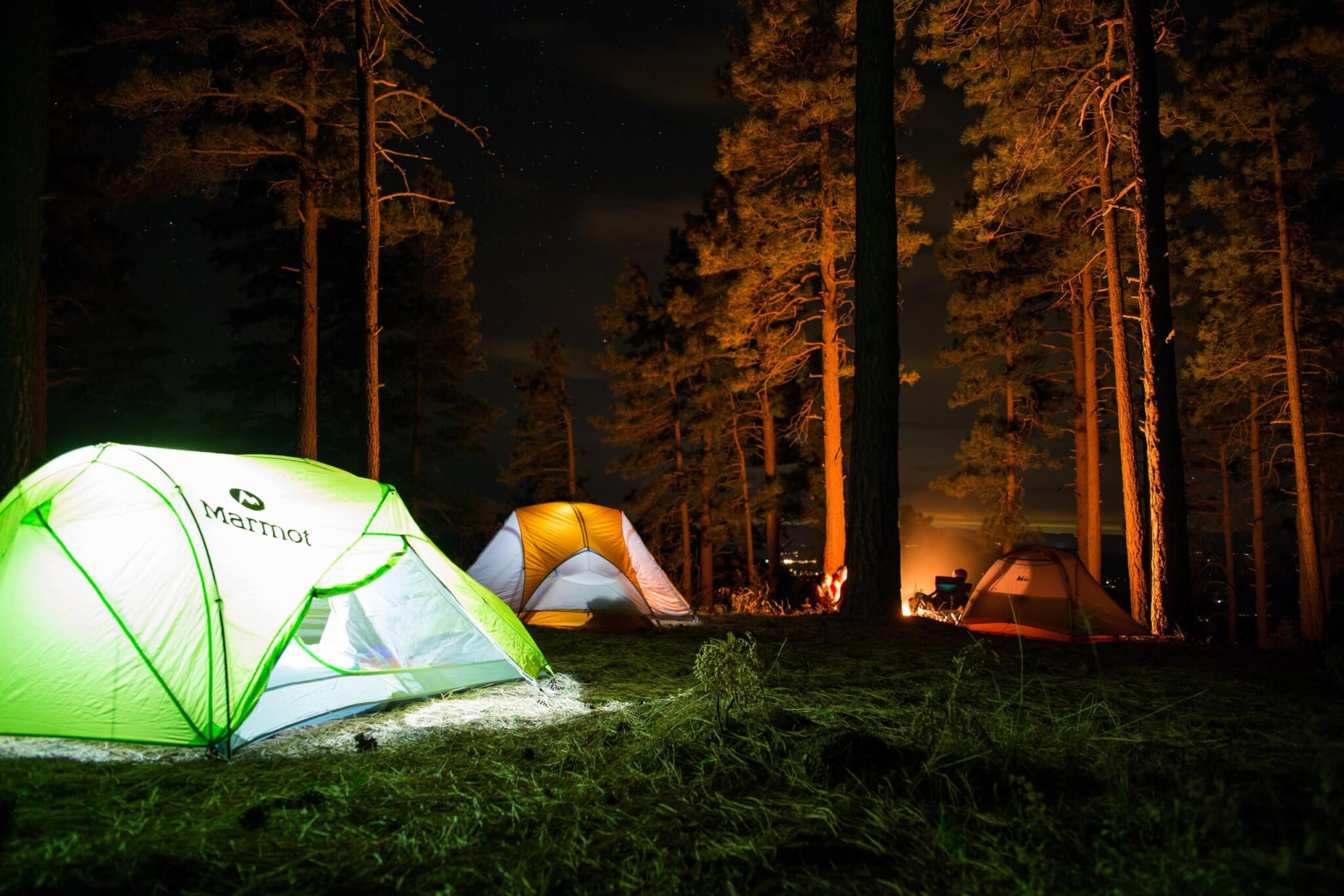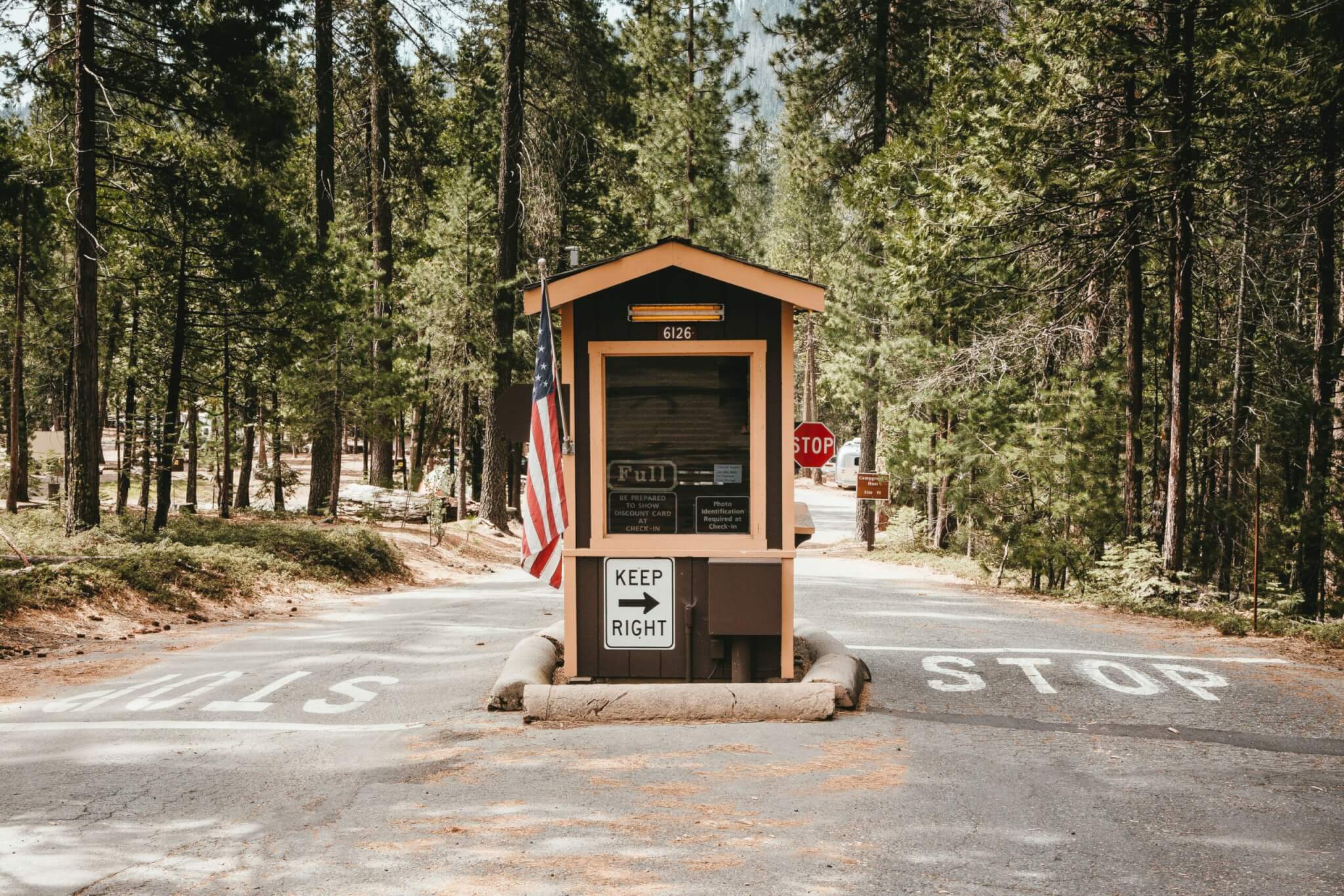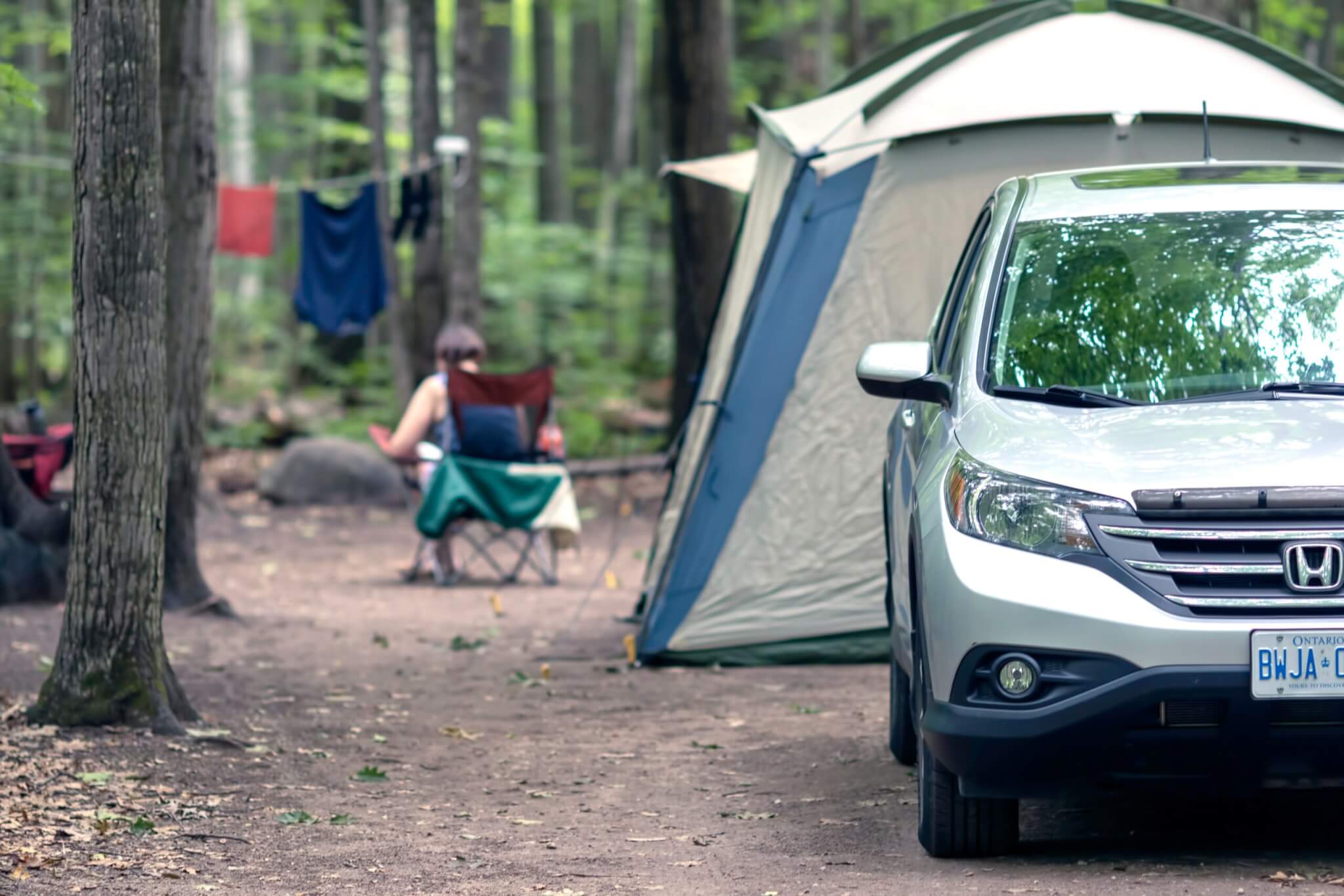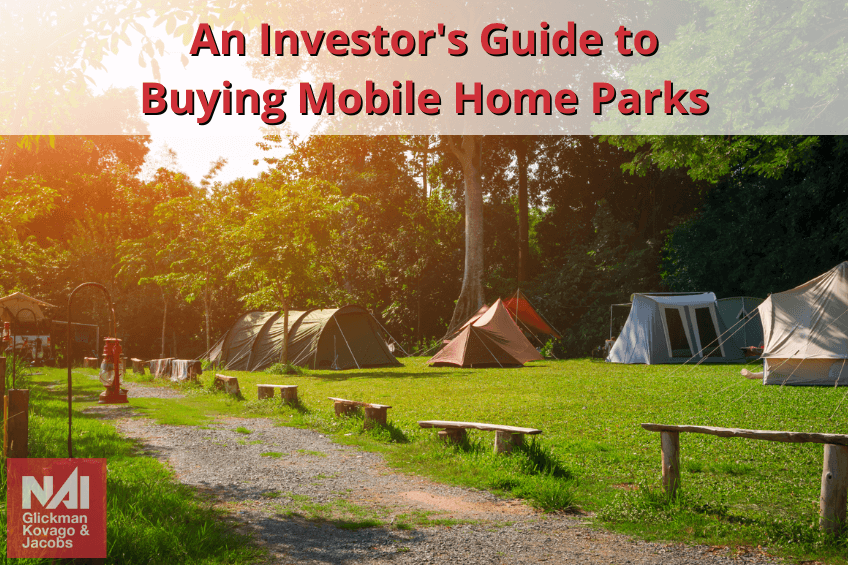As the allure of outdoor activities and recreational travel continues to rise, mobile home parks have become an attractive option for many adventurous real estate investors.
Mobile home parks present unique opportunities to combine business with nature. You can tap into the growing demand for outdoor experiences while keeping your overheads and monthly expenses relatively low. It’s good to consider these expenses and create a comprehensive budget carefully. That way, you can ensure that your revenue from site rentals can cover these costs while allowing for profitability and future growth.
This comprehensive guide will explore everything you need to know about venturing into this exciting form of investing. Keep reading to broaden your horizons with camping properties!
Plan Your Campground Ownership Investment
Owning a campground or RV park entails various expenses that are important to consider for financial planning and operational management. Some of the primary expenses associated with owning a campground or RV park include:

1) Maintenance Costs
Ongoing maintenance costs form a critical part of the operational budget for a campground or RV park. These costs encompass a wide range of activities necessary to keep the property in top condition, including regular repairs, timely upgrades, and consistent upkeep of facilities and infrastructure. Effective maintenance not only ensures the safety and satisfaction of your guests but also helps preserve the value of your property over time.
In addition to basic repairs, it’s important to plan for the unexpected. This preparation could include storm damage, plumbing issues, or electrical faults that need immediate attention. Setting aside a contingency fund for these unforeseen expenses can prevent financial strain. Regular maintenance checks and proactive upgrades can also reduce long-term costs by addressing issues before they become major problems, ultimately enhancing the guest experience and boosting the appeal of your campground.
2) Utilities and Other Services
Efficient management of utilities such as water, electricity, and sewer systems is essential for the smooth operation of any campground or RV park. These services not only support the day-to-day functionality of the site but also significantly impact the overall guest experience. Utility expenses can vary widely based on the size of the property, the number of sites, and the level of usage by guests, making careful planning and monitoring crucial.
To optimize utility management, consider implementing energy-efficient solutions like solar panels or LED lighting, which can reduce electricity costs and appeal to eco-conscious travelers. Additionally, regular audits of water and sewer systems can help identify leaks or inefficiencies that, if addressed promptly, can lead to substantial cost savings. By investing in sustainable practices and technologies, campground owners can not only minimize their operational costs but also enhance their appeal to potential guests looking for environmentally friendly lodging options.
3) Staffing and Payroll
Staffing is a pivotal component in the management of any campground or RV park, where the quality of guest service often directly influences the success of the business. Payroll expenses encompass not just salaries but also benefits and training for a diverse team that may include campground managers, maintenance personnel, office staff, and security. Ensuring that your staff is well-trained and adequately compensated is crucial for maintaining a high level of service and operational efficiency.
When planning your staffing needs, consider the seasonal nature of the business and the possibility of hiring seasonal workers to handle peak times, which can help manage payroll costs effectively. Investing in ongoing training programs can also enhance staff skills and improve guest satisfaction, leading to higher occupancy rates and more repeat business. Effective human resource management, including motivational initiatives and performance-based incentives, can foster a dedicated team, reduce turnover, and maintain a positive work environment, ultimately impacting the profitability and reputation of your campground.
4) Marketing and Advertising
Effective marketing and advertising are essential to attract and retain guests in today’s competitive campground market. This marketing can involve a multifaceted approach, utilizing both online and offline channels to reach potential customers. Online advertising should include a well-maintained website, an active social media presence, and strategic email campaigns that highlight the unique features of your campground or RV park. Utilizing SEO strategies can also enhance your visibility in search engine results, drawing more traffic to your website.
Offline marketing efforts might include print materials like brochures and flyers, as well as partnerships with local tourism boards or travel agencies that can help drive visitors to your location. It’s also beneficial to engage in community events or sponsor local activities, which can increase your campground’s local visibility and reputation. Additionally, offering promotions and discounts during off-peak seasons can help maintain a steady flow of guests throughout the year. By combining these various marketing strategies, you can effectively increase your reach and attract more guests to your campground, boosting occupancy and revenue.
Are you looking to develop a real estate investment plan?
5) Insurance
Securing comprehensive insurance coverage is crucial for protecting your investment in a campground or RV park. This investment includes liability insurance, which safeguards against claims related to injuries or accidents on your property, and property insurance, which covers damage to your physical assets from fires, storms, vandalism, or other disasters. Additionally, considering specialized coverage options, such as for water sports or rental equipment, can be wise depending on the amenities your campground offers.
It’s important to regularly review and adjust your insurance policies to ensure they remain adequate as your business grows and your assets evolve. This review may involve increasing coverage limits or adding new policies to cover additional risks associated with new services or facilities. Working with an insurance broker who understands the unique needs of the recreational and hospitality industry can help you navigate these choices, ensuring that you have optimal protection against potential liabilities and losses. Proper insurance not only provides financial security but also peace of mind, allowing you to focus on enhancing your guests’ experience.
6) Taxes
Navigating the tax obligations of owning a campground or RV park is crucial for maintaining financial health and compliance. Property taxes are an ongoing expense and vary significantly depending on the campground’s location and the local tax rates. These taxes are typically based on the assessed value of the real property and improvements you’ve made, such as buildings, recreational facilities, and any other permanent structures.
In addition to property taxes, campground owners should be prepared for potential sales taxes on rental income from guests and possibly other taxes related to services offered on the premises, like equipment rentals or sales of goods. It’s advisable to consult with a tax professional who specializes in real estate or small business to ensure you’re taking advantage of any applicable tax deductions or incentives, such as depreciation or energy-efficiency upgrades. Proper tax planning can help manage cash flow more effectively, turning a potential challenge into an opportunity for savings and investment into further growth.
7) Amenities and Recreation Facilities
Investing in quality amenities and recreational facilities is key to differentiating your campground or RV park and enhancing guest satisfaction. These amenities not only attract a wider array of guests but also contribute to longer stays and positive reviews. Common facilities include swimming pools, playgrounds, sports courts, hiking trails, and community areas such as fire pits or picnic spaces. Additionally, providing modern conveniences like Wi-Fi, laundry facilities, and clean shower areas can significantly elevate the guest experience.
When planning these facilities, consider both the initial construction costs and the ongoing maintenance expenses. It’s also important to tailor your amenities to the preferences of your target market. For instance, family-oriented parks might benefit from splash pads and kid-friendly activities, while parks catering to an older demographic might focus on golf courses and serene garden spaces. Regularly updating and adding to your amenities based on guest feedback and industry trends can help keep your property competitive and appealing. This proactive approach to facility management not only ensures guest retention but also potentially allows you to command higher site fees.
8) Operational Expenses
Operational expenses for a campground or RV park encompass a broad spectrum of costs that contribute to the daily running and overall functionality of the business. These expenses include essential items like office supplies, which support the administrative side of operations, and reservation software or booking systems, which are critical for managing guest bookings efficiently and effectively. Accounting services are vital for accurate financial tracking and budget management, ensuring that all financial operations are transparent and in compliance with legal standards.
Additionally, legal fees might be incurred when dealing with zoning issues, compliance with local regulations, or any disputes that arise. It’s crucial to have a good legal framework to protect your business interests. Another significant operational cost includes utilities management beyond just the basic services, such as garbage removal and security services, which are essential for maintaining a safe and clean environment for guests.

Identifying Your Ideal Mobile Home Parks
Before embarking on your journey as a campground investor, it’s crucial to identify the type of campground or RV park that aligns with your investment goals and target market. Consider factors such as size, amenities, target audience (family-oriented, adventure-focused, etc.), and seasonality.
Determining the Best Location to Purchase or Build Mobile Home Parks
Location plays a pivotal role in the success of your campground investment—research areas with high tourism potential, accessibility, and proximity to popular attractions or natural landmarks, such as national and state parks, beaches, and popular hiking spots. Additionally, consider local zoning regulations and environmental factors that may impact your property.
Odds are a potential camper would rather visit your campground over a competitor if yours was closer to a park or hiking trail, even if your site fees were more expensive.
Organizing Your Finances and Building a Successful Team to Hunt for Your Campground
Purchasing a campground requires a lot of careful construction planning. Assess your budget, including the acquisition cost of the campground or RV park, operational expenses, and potential renovation or expansion costs. As mentioned at the beginning of this article, this will be vital in figuring out exactly what you can afford.
Assembling a competent team, including real estate professionals to help you find the perfect property, a lender, an attorney, campground managers, and maintenance staff, will contribute to your investment’s smooth operation and success.
Start building your real estate investment portfolio today
Financing Options for Camping Properties
Securing financing for a campground purchase can be achieved through various avenues, including approaching:
- banks
- credit unions
- private lenders
- specialized lenders familiar with the unique aspects of campground investments.
Prepare a solid business plan based on real costs and demonstrate your understanding of the industry’s potential profitability. First, save for a down payment. Then, make sure you’ve found an offer for a loan with a manageable interest rate that you can sustain in the early years of your business.
Where to Find Mobile Home Sites for Sale
You should explore multiple resources when searching for campgrounds for sale or RV parks for sale. Online platforms, real estate agents, industry publications, networking within the camping community, and attending relevant conferences or trade shows are effective ways to find available camping properties.
Here are some compressive sites to check out for available campground or RV properties:
Building Mobile Home Parks from Scratch
Can’t find exactly what you’re looking for in an existing campground? Why not build your own – but what’s involved?
While purchasing an existing campground is more common, building a campground from scratch can tailor the property to your vision. This option requires careful planning, including land acquisition, zoning permits, infrastructure development, amenities construction, and marketing strategies. Lending also might be more difficult to attain. It could be harder to gain a following of loyal campers without any prior reviews.

Key Takeaways
Successful campground owners prioritize understanding their target audience. Research the demographics, preferences, and interests of your potential guests. Cater amenities and activities to suit different age groups, interests, and camping styles. You might include tent camping, RVing, or cabin rentals.
We suggest visiting campgrounds for sale or RV parks for sale in your area and experiencing the amenities yourself. Figure out what you’d like to see improved, what you already enjoyed, and some things you could live without. This search will help you better understand what a camper is looking for and how to make your campground or RV park successful!
Investing in campgrounds and RV parks can be rewarding, combining business acumen with the joy of providing unforgettable outdoor experiences. By carefully considering the property type, location, finances, team-building, and guest preferences, you can position yourself for success in this thriving industry. Whether you purchase an existing campground or build one from scratch, remember that owning one is a fantastic investment and an opportunity to create lifelong memories for campers and nature enthusiasts.
Happy camping and property investing!
Contact us today for a free real estate consultation!
About NAI Glickman Kovago & Jacobs
NAI Glickman Kovago & Jacobs is a leading, full-service commercial real estate brokerage and tenant representation company based in Worcester, MA. We have an award-winning restaurant, retail, office, industrial, multifamily, and medical real estate management record.
We can also assist with land acquisition and development as a commercial brokerage. Our deep local knowledge comes from decades of business partnerships with commercial contractors and key community vendors. Whether buying, selling, or leasing, we can find the right mobile home sites for sale to fit your needs.
Contact us today if you need help finding brokerage, commercial construction management, or real estate property management in Worcester, MA. You can also follow us on Facebook, Instagram, and LinkedIn for more updates about commercial property for rent in Worcester, MA.
About NAI Global
NAI Global is the single largest, most powerful global network of owner-operated commercial real estate brokerage firms. NAI Global provides a full range of corporate real estate services, including brokerage and leasing, property and facilities management, real estate investment and capital market services, due diligence, global supply chain and logistics consulting and related advisory services. NAI Global Member firms, leaders in their local markets, are actively managed to work in unison and provide clients with exceptional solutions to their commercial real estate needs.
